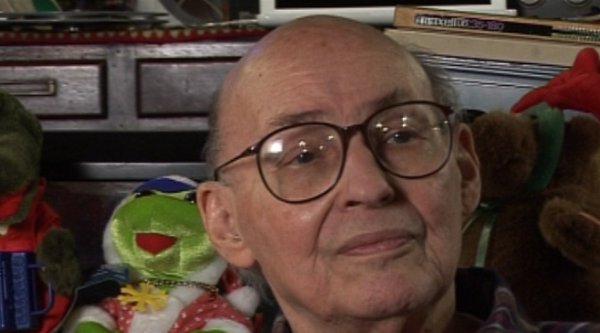NEXT STORY

The work of BF Skinner
RELATED STORIES

NEXT STORY

The work of BF Skinner
RELATED STORIES


|
Views | Duration | |
|---|---|---|---|
| 121. The problem with perceptrons | 1492 | 02:08 | |
| 122. Embarrassing mistakes in perceptron research | 1620 | 02:47 | |
| 123. Why we should publish failures in AI research | 1253 | 01:09 | |
| 124. Claude Shannon's world changing publication | 1 | 1529 | 01:37 |
| 125. Why I got on so well with Claude Shannon | 1731 | 02:09 | |
| 126. Making a ball bearing weapon | 1242 | 03:27 | |
| 127. Making the most useless machine | 8554 | 01:11 | |
| 128. A short history of chess playing machines | 1529 | 03:23 | |
| 129. Did the chess playing machines have an impact? | 1263 | 01:34 | |
| 130. The influence of Nicholas Rashevsky's mathematical biophysics | 1221 | 01:41 |


I had an extraordinary run of good fortune – I think I’ve mentioned this before – when I was in college of just meeting people who knew a lot about exactly what I happened to be interested in at the moment. And as I mentioned earlier, I was very strongly influenced by my accidental encounter with the great book by Nicolas Rashevsky called Mathematical Biophysics. I just happened to find it in a library and it had articles about applying mathematics to different aspects of biology. There would be a chapter on... how does a cell divide? Or how… what kind of physical system could cause a cell to contract at the equator and break into two parts without spilling all its contents? Just lovely little questions that any child could see... that’s… that's a question. How could it work? How could a nerve fiber conduct a signal? Chemical reactions might seem too slow to go at 100 meters per second so… or 10 meters per second or whatever it is. What’s the trick? This book was full of different applications of ordinary mathematics to biological problems. I’ve never seen anything like that. And one of them was about learning machines and neurons by McCulloch and Pitts.
Marvin Minsky (1927-2016) was one of the pioneers of the field of Artificial Intelligence, founding the MIT AI lab in 1970. He also made many contributions to the fields of mathematics, cognitive psychology, robotics, optics and computational linguistics. Since the 1950s, he had been attempting to define and explain human cognition, the ideas of which can be found in his two books, The Emotion Machine and The Society of Mind. His many inventions include the first confocal scanning microscope, the first neural network simulator (SNARC) and the first LOGO 'turtle'.
Title: The influence of Nicholas Rashevsky's mathematical biophysics
Listeners: Christopher Sykes
Christopher Sykes is a London-based television producer and director who has made a number of documentary films for BBC TV, Channel 4 and PBS.
Tags: Mathematical Biophysics, Nicolas Rashevsky, Warren McCulloch, Walter Pitts
Duration: 1 minute, 42 seconds
Date story recorded: 29-31 Jan 2011
Date story went live: 13 May 2011